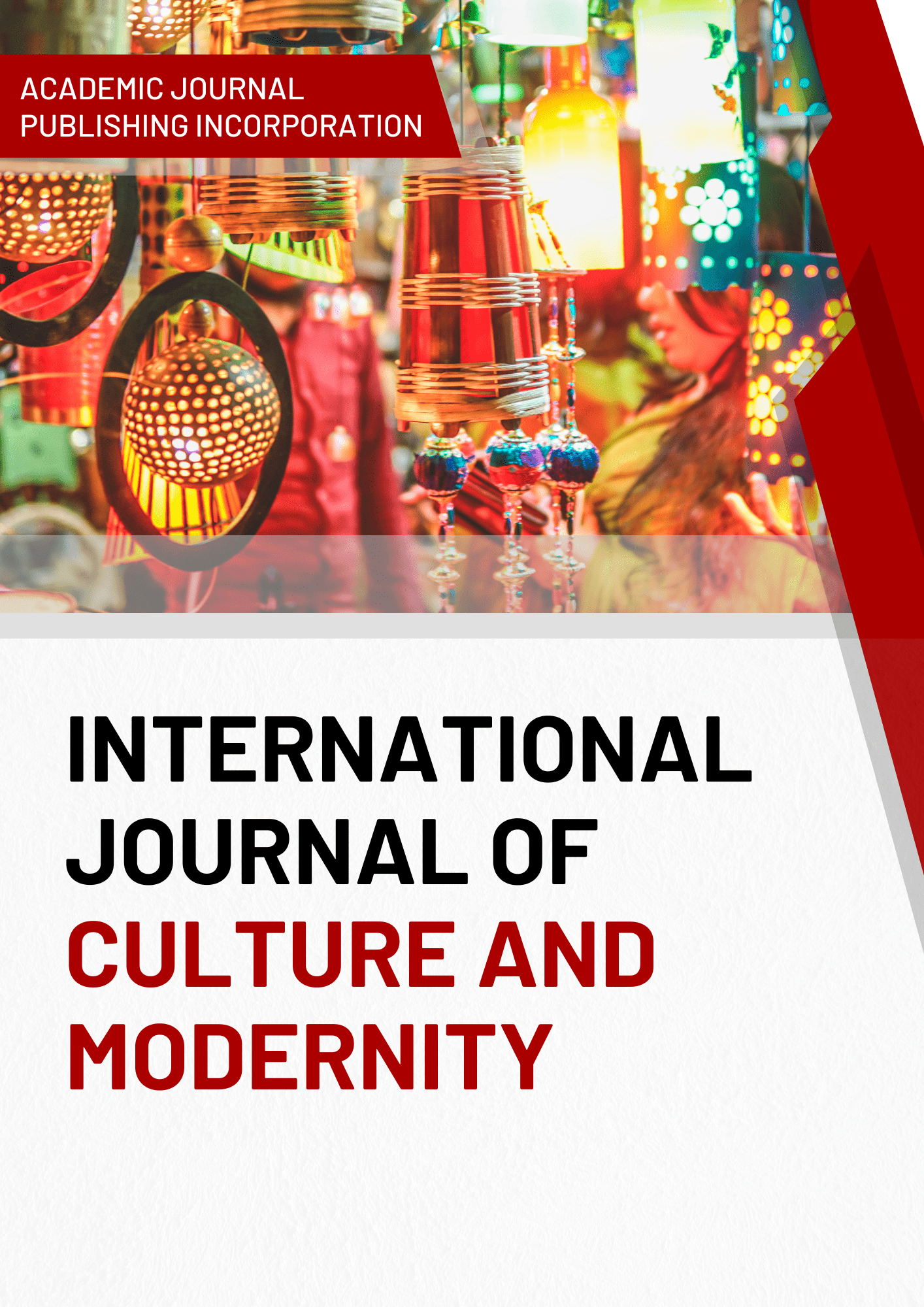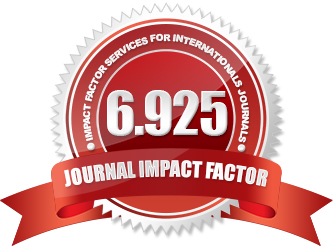Perspectives of Globalization on Teacher Education in Nigeria: Imperative to National Security
DOI:
https://doi.org/10.51699/ijcm.v33i.589Keywords:
Globalization, Education and Teacher educationAbstract
The impact of globalization on education across the globe is in no mean measure, felt in many obvious ways by teachers in Nigeria, either positively or negatively. In many nations, novelty and innovation have been introduced in teacher education through renewed educational plans, policies, decisions, implementation and import of technology so that teachers’ knowledge and skills can be embellished with the demands of the global workplace. However, the dwindling fortunes of teaching profession orchestrated by poor governance has dismembered teachers in Nigeria from global village linkages. Differences exist across the length and breadth of Nigeria in the way and manner teachers are perceived by the general public. This scenario gives a definition of who becomes a teacher in each state of Nigeria, how they are respected and how they are financially rewarded. This affects their job performance in teaching and learning, teachers’ effectiveness in bringing out the best from their pupils or students in terms of their learning outcome. This paper centers its discussion on perspectives of globalization on teacher education in Nigeria: Imperative to national security.
References
Ahaotu, Godwin Ndubuisi1 & Ogunode Niyi (2018). Teachers as Substitute Parents, Supervisors and Evaluators of Teaching/Learning Process: Imperative to Nation Building. Electronic Research Journal of Behavioural Sciences, Volume 1. Page 85-92.
Aghenta (1992). Operational Objectives, achievements and shortcoming in the implementation of policies in teacher education in Nigeria. In A. Ndu et al (Eds). Educational Policy and Implementation in Nigeria. Akwa: Mekslibk publishers
Alani, R.A (2000). Towards a System of Continuous Teacher Education in Nigeria. In Emergent Issues in Education. Vol.3, pages 204-216.
Al-Senaidi, S. R., & Gawande, V. (2013). Factors affecting adoption of ICT among Omani faculty members in Sultanate of Oman. International Journal of Computing Academic Research (IJCAR), 2(5), 200-213. Retrieved July 6, 2014, from http://www.meacse.org/ijcar
Asangansi, I. E., Adejoro, O. O., Farri, O., & Makinde, O. (2008). Computer use among doctors in Africa: survey of trainees in a Nigerian teaching hospital. Journal of Health Informatics in Developing Countries, 2(1), 10-14. Retrieved July 6, 2014, from http://www.jhidc.org/index.php/jhidc/issue/view/4.
Babalola, J. B. (2007). Reform and Development of Nigeria’s Tertiary Education, focus on Obasanjo’s administration. In T. B. Babalola, N. O. Ayeni, S.O. Adedeji, S. O. (eds) Access, Equity and Quality in higher education. Ibadan: Awemark Industrial Printers.
Becta. (2008). Emerging technologies for learning. Vol. 3. Available at: http://freeonlinebook.Net/ Others/5032/ Emerging- Technologies-for-Learning-Volume-3-2008-FULL- REPORT (accessed 21 October 2011).
Boughey, C. 2002. ‘Naming’ students’ problems: An analysis of language-related discourses at a South African university. Teaching in Higher Education 7(3): 295–307.
Bozalek, V. (2011). An investigation into the use of emerging technologies to transform teaching and learning across differently positioned higher education institutions in South Africa. In G.
Bright Chima Megbo, Godwin Ndubuisi Ahaotu (2015). Perspectives on manpower development programmes and graduate unemployment in Nigeria. International Journal of Multidisciplinary Research and .Development; 2(3): 359-366.
Bright Chima Megbo, Godwin Ndubuisi Ahaotu (2015). Sustaining University Undergraduate Programmes in Nigeria through annual performance management. International Journal of Multidisciplinary Research and Development, 2(3): 721-725
Chigona, D. and R. Dagado. 2011. Adoption and use of e-learning at tertiary level in South Africa: A qualitative analysis. Global Learn Conference, 28 March – 1 April, Melbourne.
Daily Sun (2013), Rufai foresaw her sack 24hrs before.
David, V. (1999). Barrier or Benefits? Regulation Transatlantic Trade Washington, D.C Brookings Institute press.
Dede, C. (2009). Comments on Greenhow, Robelia and Hughes: Technologies that facilitate generating knowledge and possibly wisdom. Educational Researcher 38(4): 260–263.
Eduard (2002) In Yusuf AbdulRaheem (2003). Globalization and Nigerian Economic development Department of Curriculum Studies and Educational Technology University of Ilorin, Ilorin. Being the text of a paper presented at the 4th Annual National Conference of the Social Studies Association of Nigeria (SOSAN) Held at the Faculty of Education, University of Ibadan, Ibadan.
Esiemokhai, E.G. (2005). Military intelligence and international law. Heidellers, Germany; international law.
Ejiogu. A (1990). School Personnel Management (a Nigeria Perspective). Lagos: University of Lagos Press.
Etim, P.J. (2006).Issues in Educational Technology. Abaam publishing Co. Uyo.
Federal Republic of Nigeria (2004) National Policy on Education. Abuja. NERDC.
Francis, F. (2001). Economic Globalization and Culture. A discussion Organised by Merrill Lynch Forum.
Plippo, E.B. (1980). Personnel in Management. Tokyo: McGraw-Hill kogakusha, Ltd.
Garraway, J. (2009). Success of foundation (extended programmes) in engineering and sciences at CPUT. In Success stories in foundation/extended programmes, 50–52. HELTASA. Available at: http://associated.sun.ac.za/heltasa/documents/Final Book
Gary, .B. (1998). Globalization: Confronting fear About Open Trade, Washington, D.C Brookings Institute Press.
Greenhow, C., B. Robelia and J. Hughes. 2009. Web 2.0 and classroom research: What path should we take now? Educational Researcher 38(4): 246–259.
Gunter, G. A. (2001). Making a difference: using emerging technologies and teaching strategies to restructure an undergraduate technology course for preservice teachers. Educational Media International, 38(1), 13-20.
Helvie-Mason, H. 2001. Facebook, ‘friending’, and faculty-student communication. In Teaching arts and science with new social media, ed. C. Wankel, 61–90. Bingley: Emerald Group.
Hogue, K. E., Razak, A. Z., & Zohora, M. F. (2012, October). ICT Utilization among school teachers and principals in Malaysia. International Journal of Academic Research in Progressive Education and Development, 1(4), 17-34.
Iredia, T. (201 1). What is National security? Nigeria Today.
Ivala, E. (2011). Implementing eLearning at a university of technology in South Africa: A qualitative study. In Proceedings of the 6th International Conference on e-Learning. Okanagan, Canada: University of British Columbia Okanagan
Johnson, L. and S. Adams. (2011). Technology outlook for UK tertiary education 2011–2016: An NMC Horizon Report regional analysis. Austin, TX: The New Media Consortium.
Johnson, L., R. Smith, H. Willis, A. Levine and K. Haywood. (2011). The Horizon Report 2011 Edition. Austin, TX: The New Media Consortium. Available at: http://neteducause.edu/ir/library/pdf/HR2011.pdf (accessed 23 October 2011).
Jones, A. 2011. How Twitter saved my literature class: A case study with discussion. In 17 Teaching arts and science with new social media, ed. C. Wankel, 91–106. Bingley: Emerald Group.
Kirkup, G. and A. Kirkwood. 2005. Information and communications technologies (ICT) in higher education teaching – a tale of gradualism rather than revolution. Learning, Media and Technology 30(2): 185–199.
Margaryan, A. and A. Littlejohn. (2011). Are digital natives a myth or reality?: Students’ use of technologies for learning. Computers & Education 56(2): 429–440. McKenna, S. 2004. The intersection between academic literacies and student identities. South African Journal of Higher Education 18(3): 269–280.
McKenna, S. (2004). The intersection between academic literacies and student identities. South African Journal of Higher Education 18(3): 269–280. M
Meyer, K. E. (2010). The role of disruptive technology in the future of higher education. EDUCAUSE Quartely 33(1). Available at: http://www.educause. e d u / E D U C A U S E + Q u a r t e r l y / E D U C A U S E Q u a r t e r l y M a g a z i n e Vo l u m / The Role of Disruptive Technology I/199378 (accessed 22 October 2011).
Ng’ambi, D. (2008). Podcasts for expansive learning: A case of reflective student stories. South African Computer Journal 42: 9–13.
Ng’ambi, D. and P. Rambe. (2008). Barriers to students’ use of electronic resources during lectures. South African Computer Journal 42: 47–53.
Nord. (2013). A New Pedagogy is Emerging...And Online Learning is a Key Contributing Factor. Retrieved Journal of Education and Practice www.iiste.org ISSN 2222-1735 (Paper) ISSN 2222-288X (Online) Vol.5, No.28, 2014 175 March 9, 2013, from Ontario Online Learning Portal for Faculty and Instructors: http://www.contactnorth.ca/trends-directions/evolving-pedagogy-0/new-pedagogy-emerging and-online learning-key-contributing
Niles, R. (2007). A study of the application of emerging technology: teacher and student perceptions of the impact of one-to-one laptop computer access. Proceedings of the 3rd Annual GRASP Symposium, Wichita State University, pp.27-28.
Ogusanya, M. (1988). Managing Personnel in Education. Ibadan: Department of Educational Management, university of Ibadan, monogragh.
Oni, A. A. and Alade, I. A. (2008). The Future of Higher Education in Nigeria, Global Challenges and Opportunities. Retrieved online from www.herp.net.org on 16 march, 2015.
Pang, L. (2009). Applying cloud computing and other Web 2.0 technologies to online and traditional classroom learning. Paper delivered at Learning Conference, 1 July, Barcelona.
Paulo, R.P (1998). Information technology: Panacea or Peril UNU Work in Progress Vol. 15 No1.
Peter, O.N (2002). Restriction Economic Through Privatization. The Economist 4 pp. 32-34
Prinsloo. (2007). Young people’s engagement with digital literacies in Snyder, I. and M.
Prinsloo. (2007). Young people’s engagement with digital literacies in marginal contexts in a globalised world. Language and Education 21(3): 171–179.
Rambe, P. and D. Ng’ambi. (2011). towards an information sharing pedagogy: A case of using Facebook in a large first year class. Informing Science: The International Journal of an Emerging Trans discipline 14. Available at: http://www.inform.nu/Articles/Vol14/ ISJv14p061-089Rambe579.pdf (accessed 23 October 2011).
Sloan, S. (2006, March 3). Emerging Pedagogy: Emerging Technologies of Importance for SJSU. Retrieved March 20, 2013, from SJSU Tech on a Mission: http://sloantech.blogspot.com/2006/03/emergingpedagogy-emerging.html
Snowball, J. and M. Mostert. (2010). Introducing a learning management system in a large first year class: Impact on lecturers and students. South African Journal for Higher Education 24(5): 818–831.
Sutton, B.B. (2006). Twenty-first Century Learners: a need for Tech-savvy Teachers. In U. Carlsson & C. V. Feilitzen (Eds.), In the Service of Young People? Studies and reflections on Media in the Digital Age (Yearbook from International Clearinghouse on Children, Youth and Media) (pp.233-254). Gothenburg: University of Gothenburg, Nordicom.
UNESCO (1990), World Declaration on Education for All and Framework for Action to Meet Basic Learning Needs, UNESCO, Paris.
Wankel, C. (2011). New dimensions of communicating with students: Introduction to teaching arts and science with new social media. In Teaching arts and science with new social media, ed. C. Wankel, 3–14. Bingley: Emerald Group.
Wighting, M. J. (2006). Effects of computer use on High School students’ sense of community. The Journal of Educational Research.
Williams, P. Statham, N. Brown, & B. Cleland (Ed.), Changing Demands, Changing Directions Proceedings ascilite 2011, (pp. 156-161). Hobart Tasmania. Retrieved from http://www.ascilite.org.au/conferences/hobart11/procs/Bozalek-concise.pdf
World Bank, Development Program, 2004. [Online] Available: http://www.worldbank.org/unite nations (August 28, 2011)






